For entrepreneurs who are looking to sell Shopify stores, this blog post will help you. Our experts will explain what you need for a successful sale and how to go about the process of selling your shop.
Selling your business or product is a complex process. Several factors must be taken into account. One factor is knowing when the right time is to make a move. Selling too early can leave you without enough money in reserves; however, waiting too long may mean that you miss out on potential buyers who may give you top dollar. Therefore, it’s essential to know when and why – is it because you need liquidity now? Or do you want more control over your destiny?
What is a Shopify store, and why would someone want to buy it?

Shopify is an e-commerce business model designed for entrepreneurs and small businesses. The ease of use and affordability draws in users from all walks of life, especially when compared to traditional e-commerce options such as eBay or Amazon. Many who sign up on Shopify do it to start their own business with minimal investment.
Shopify stores can be built and run efficiently by entrepreneurs and small business owners looking to start an online store for their clients or as a side hustle. While it’s true you don’t need much Shopify capital to get started, successful entrepreneurs often do not look at Shopify stores as the main business. Instead, Shopify stores are looked at as a “side project” or a means for generating additional income.
>> Free! Free! Signup for Shopify free trial here!
What should you do before selling your online store?
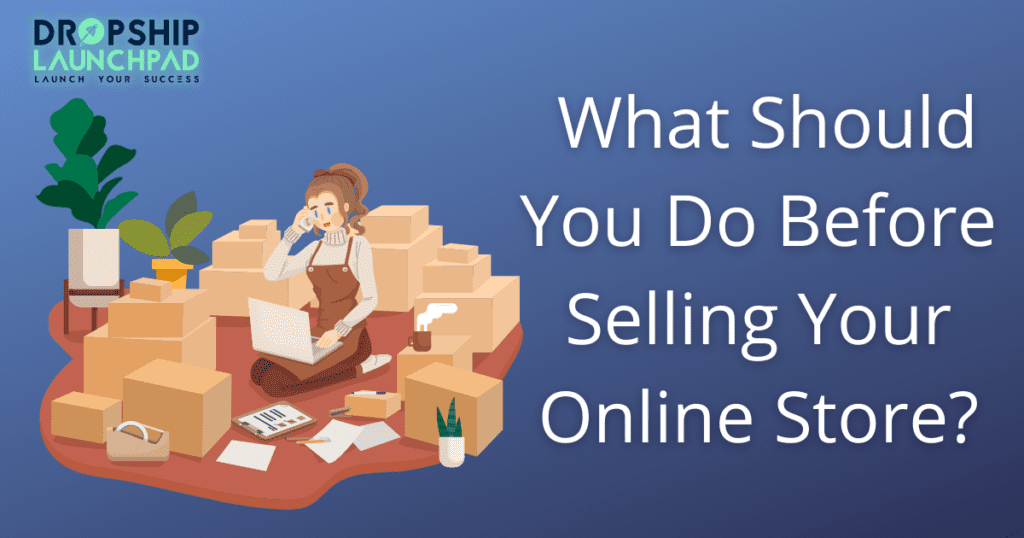
Make a list of all the tasks you need to complete before putting your store for sale online.
- Gather information about your store, so potential buyers know what they are buying.
- Find out who is qualified and willing to buy this type of business.
- Determine the asking price.
- Decide on any last-minute details.
- make a profit and loss statement.
- Put up listings for the billing and payment information.
- Determine which exchange marketplace app do you want to use.
Once contact has been established, set up a meeting to go over the details.
A smart move is to have your attorney or Shopify legal team go through all of your documents with you. It would be useful if you inquired about any legalities surrounding selling an online store since it can be tricky transferring domain names, hosting companies, social media accounts, trademarks, and more.
Also, don’t forget to keep your products in mind! Ensure that they are providing value to customers before listing them for sale on websites. If you have faulty items, then it’s time to offload them or offer steep discounts to attract buyers who are willing to fix the thing themselves.
What information should you include in your Shopify store listing?
When it comes to buying your store, you should let potential buyers know what to expect. Here are a few things to include:
- Domain name
- Social media accounts
- List of employees currently working for you
- It’s also important to disclose why you are willing to sell your Shopify store.
How much does your store cost?
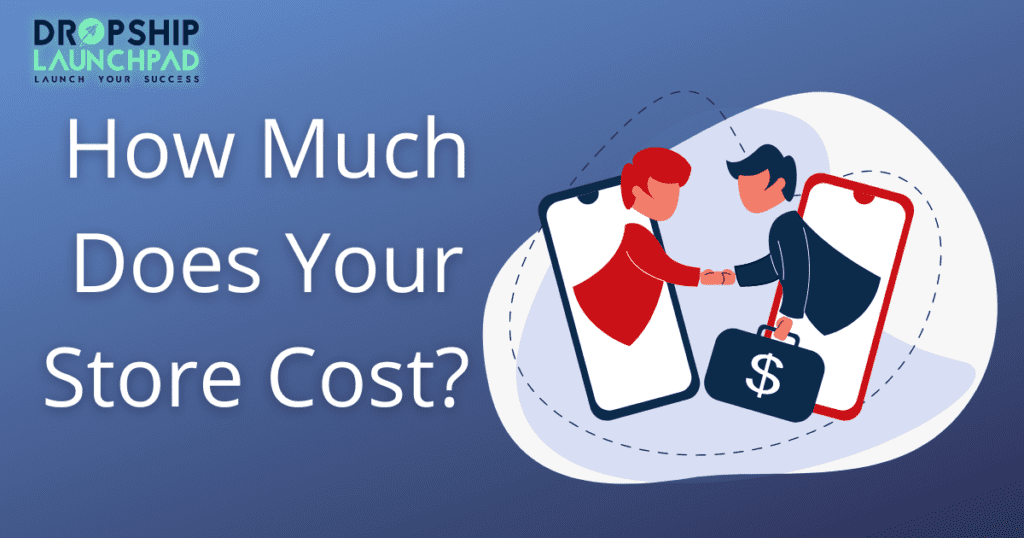 Selling your Shopify store is a business transaction, so it’s important to list prices for everything that comes with the sale. These might include:
Selling your Shopify store is a business transaction, so it’s important to list prices for everything that comes with the sale. These might include:
- Domain name
- Social media accounts
- List of employees currently working for you
- Marketing materials/content
- Sales reports/statistics
It’s also wise to include an estimated timeline of how long it would take to transfer these items to the new owner. Some things, like social media accounts and domain names, are easy to transfer, but other content might be more time-intensive. Pricing your store can help potential buyers decide whether your business is worth spending money on or not.
The basic formula for valuation of your eCommerce store is:
12-Month average net profit x Multiple = Valuation
(In most cases, the multiple is between 20x and 50x)
You might have seen online businesses valued with another formula:
EBITDA x Multiple (~2-4x)
We are using an annual multiple of EBITDA, or earnings before interest, taxes, depreciation, and amortization for the above formula.
The multiple values are affected by several factors:
 Age of your Shopify business
Age of your Shopify business
The more time and effort you put into your business, the stronger it will become. Having a long history of success in an industry may appear old school to some people, but they have proven their worth against external forces, which can withstand any test of time due to this success over many years.
Older businesses are often judged by how much “newer” companies resemble them on social media or through rapid growth patterns. However, these similarities don’t matter because there was never anything unique about those once-popular brands anyway! The fact remains that longevity matters most when considering who made money off stocks last year vs. someone else.
Traffic Diversification of your store
The value of your Shopify store is dependent on traffic diversification. This means that the more visitors you get, the higher its worth for advertisers and buyers alike!
So, if you want to increase the value of your shop, you must have increased traffic. Traffic can come from more than one source, and having multiple sources is better than just focusing on Facebook ads or Google Adwords alone!
Products availability
The availability of your products is what affects the overall value of the Shopify store. There’s no point in charging people for them if they’re not available because they can never get paid back.
Strength of the brand of your Shopify store
The value of your Shopify business online is determined by how well-known and reputable the brand behind it is. The better the brand, the more you can charge for it because people know that you will deliver on your promises!
This means that the overall value of your Shopify store can differ based on your brand value.
Assets owned by your Shopify store
The total value of your Shopify store depends on the number and type of future cash flows asset you own. For example, if a company has $1 million in revenue, only 10% ($100) comes from online sales due to an outdated website design with no SEO copywriting skills. So it’s likely not going to be worth much more than, say, 30 cents per share!
Monthly Average Net Profit
The value of your online store depends on how efficiently you make a monthly net profit. To find out what this means, take the monthly average net profit (NAVP) for each month and then divide it by 12 to get an idea about its current worth. Then multiply that amount again with a 5 percent growth rate per year which is considered a healthy industry-standard turnover volume increase because it feels inflation while keeping prices stable over time.
Potential for future growth and expansion
Shopify’s potential to grow and expand makes it such a valuable tool in the e-commerce world. The more its worth can be raised, the better your business will fair on the market, which means you’ll see your company’s value rise as well; then, it will be much easier to sell because there’s a greater chance that someone else will want it!
Usually, people would begin with sales figures and end with current earnings like EBITDA, but here, we’ll go the other way and start with it since that’s what truly matters the most in terms of its worth.
Before anything else, you need to establish sales figures. And make sure your online store is optimized properly, making it easier for you to sell, or you will be significantly limiting your store’s overall value.
Currently, Shopify has an average commission fee of 5 percent for monthly sales between $0 and $10 thousand, which will go up to 8 percent for amounts between $10 and $100 thousand, and then immediately drop back down to 5 percent again once the higher volume threshold is breached. The same thing happens when you begin selling more than $1 million worth of products per month which means your store could be valued anywhere from 0.50 cents on the dollar up to $5 on the dollar for every sale.
Cash flow and cash on hand
The value of your store is also determined by the current balance between cash flow and outstanding invoices.
A company can have a high valued stock portfolio but still experience financial difficulties if it’s unable to meet its debt obligations due to a lack of liquidity. This means that without enough money coming in from sales or other business activities, there won’t be any way for them to make required payments on time as their profits will dry up quickly into nothingness.
To determine your Shopify store’s value, the account owner needs to know just how much money it has in its cash reserves. It makes sense because, without sufficient funds on hand, you won’t be able to make the necessary investments needed to sell your products or services better; and if you can’t do that successfully, then there’s no way for you to profit.
Who is a qualified buyer?
When you sell a business, it’s essential only to accept offers from credible buyers. Otherwise, you could be faced with legal issues surrounding the transfer of assets and accounts. In addition, a potential buyer should have experience in your industry and enough funds to purchase your business without putting them at risk of bankruptcy.
Tips for selling your Shopify store
Selling an online store can be a valuable experience for Shopify store owners, but it’s also time-consuming and complicated. To streamline the process, you should place ads on websites that list businesses for sale, like BizBuySell or flippa. These sites help connect buyers with sellers in their area. Since they already have a proven track record of providing buyers with high-quality listings, they can streamline your buying process and potentially save you money in the process.
- Provide as much information as you can.
- Include a list of assets that come with the business.
- Be clear about who is qualified to purchase the store and why they would be a good owner.
- Validate requests before providing contact information, so you don’t have to deal with spam.
What to look for in a Shopify store before buying? (For Buyer)
When purchasing an existing store, you’re looking for transparency into what’s included in the sale. This is important because the standard logo that appears when someone lands on your site is very low quality and often unprofessional. Make sure you know what features your store offers as well. For example, if a custom domain was purchased and added to the original Shopify account (a free feature), you should ensure it goes with the sale since it will come with the buyer.
When you buy a Shopify store, the following are included in most transactions.
– Logo – Custom domain – SSL Certificate – Shopify Website Features
Often you may be able to get premium features added by the seller, but these are at their discretion, so be sure to ask upfront.
The following isn’t included in the sale of a Shopify store:
– Customer data – Inventory – Credit card merchant account
Where to sell your Shopify store
As you now know how much your online store is worth and how much money it’s bringing in every month, you’re probably wondering where to sell a Shopify store.
Sell your store privately.
Online communities and groups are an excellent way for store owners to advertise their businesses to buyers, who will contact them directly.
The first place most people look is Facebook groups which are supposed to be selling like hotcakes but often end up nowhere.
Blogging sites can also be a good option in case you have a strong following on your site already.
Even if you select the buyer and price, there are many things to consider before you sell your business.
The potential buyer might be a fraudster trying to steal your funds by pretending to be a buyer. So, if you selling your store personally be aware of that.
Sell your store on a marketplace.
You can sell your store through an online marketplace and earn the most out of it with minimal effort!
BizBuySell
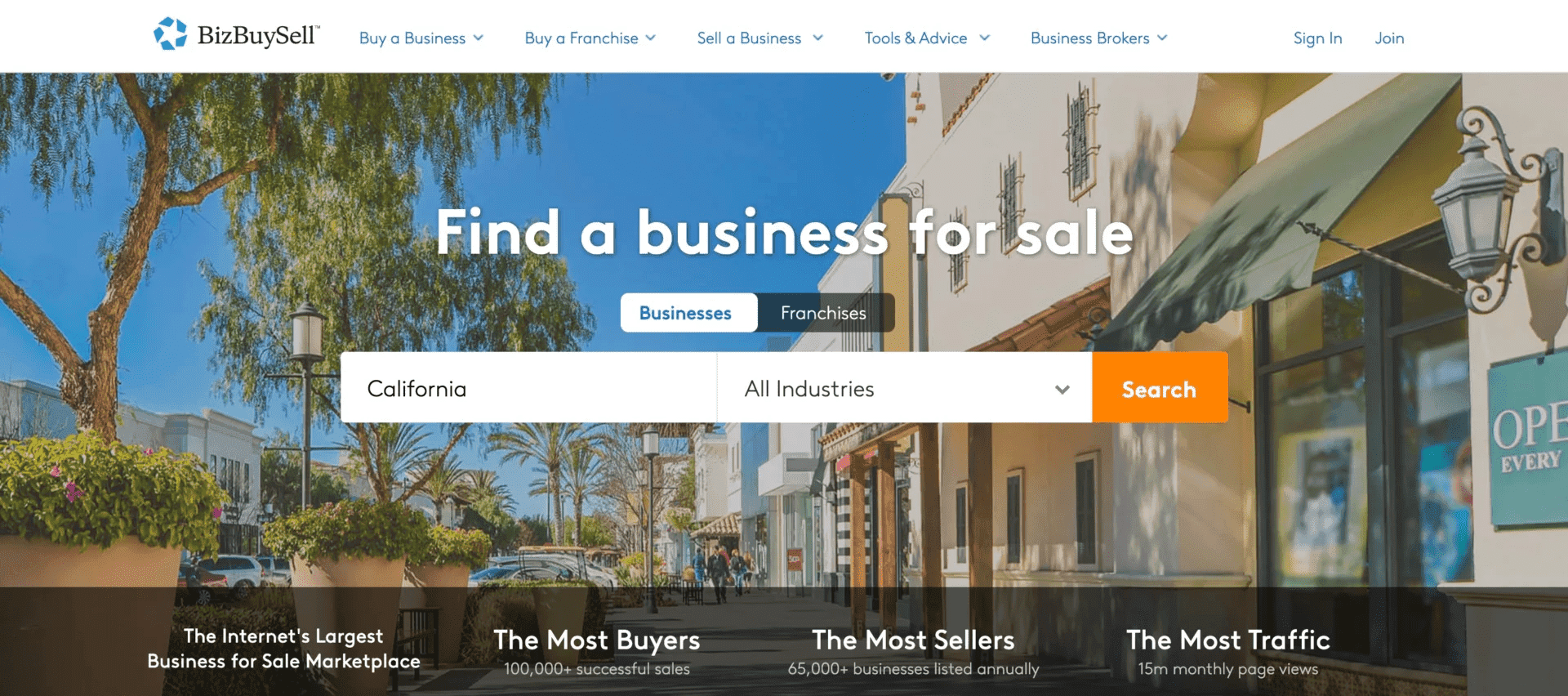
BizBuySell has one of the largest inventories for businesses online, with over 65K listings and 3 million monthly visitors. The site is more active than anywhere else on the internet!
It’s easy to use, and they even offer financing options to help you purchase your next business.
Nonetheless, you should be aware that many of these sites will charge a surcharge on top of the sale price, which will be deducted from your final payment.
Flippa

Flippa is another marketplace for selling online businesses and digital assets. It has a user base of 3 million, spans 100+ countries, and sells 300,231 digital assets worldwide!
Online business owners meet to trade their assets on this platform, such as eCommerce sites, blogs, SaaS companies, mobile applications, social media accounts, newsletters, etc.
Empire Flippers
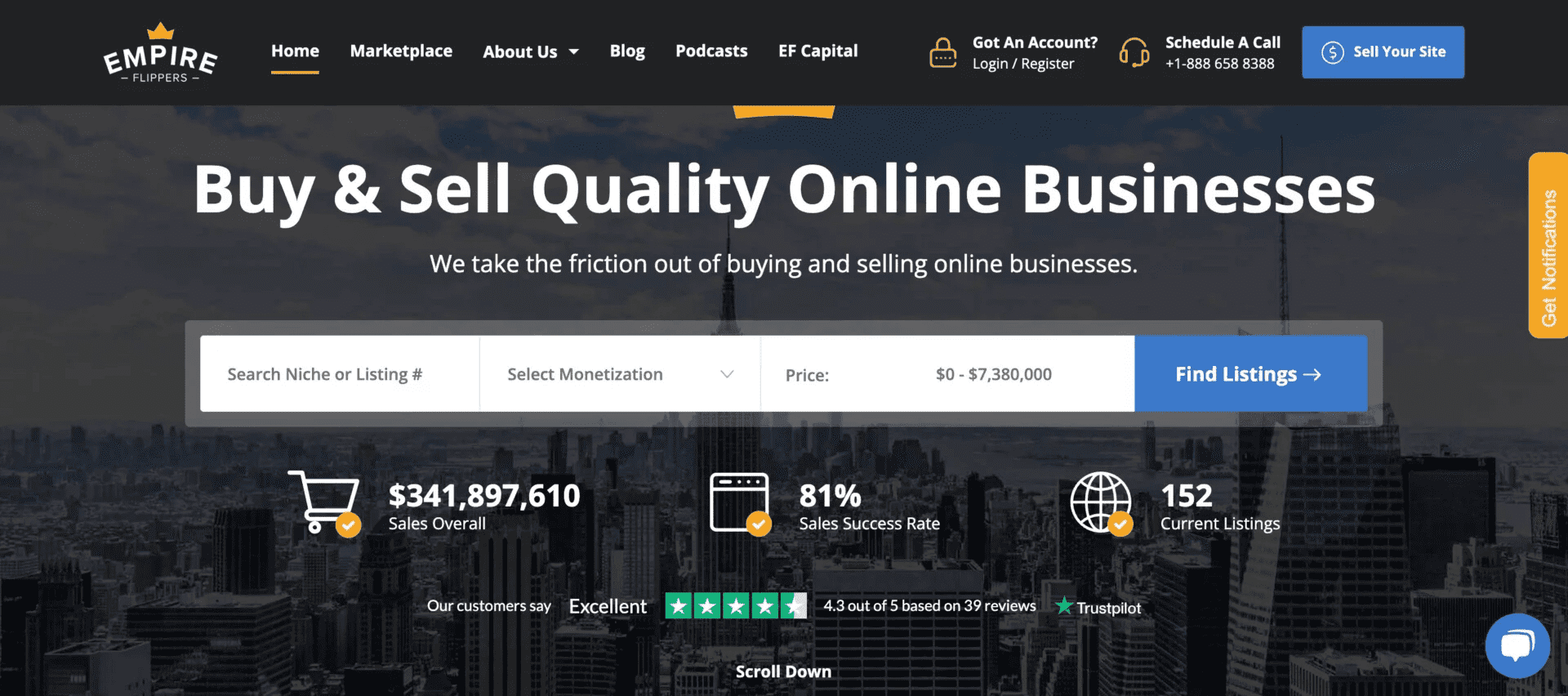
Empire Flippers is another eCommerce platform for buying and selling online businesses. It also offers a free valuation of your business and conducts due diligence before the transaction goes through.
Since 2012, the company has sold a total of $341,897,610.
It’s also a great place to list your store because they provide excellent customer service.
Shopify Exchange Marketplace

If you are looking for a marketplace to sell your Shopify store without doing too much work, look no further! The Shopify Exchange Marketplace is the best place for you.
All you have to do is list your store on their platform and wait for buyers to contact you or request a free valuation of your online business. Once they accept the offer, their experienced staff will walk you through the entire process.
Once you receive your payment, they transfer the store to the new owner and delete all your private information from your servers.
A Step-by-Step Guide to list Your Shopify Business for Sell

#Step1: Add Your Business to the Marketplace
It is very easy to list your Shopify business for sale. To begin with, you have to answer a few questions about your business, and their team will review your submission.
#Step2: Approval of listings
If all of your documents satisfy the company, they will approve your listing. If not, they will contact you for further documents.
#Step3: Publish your listing
The marketplace will help you find real investors by connecting you to thousands of interested buyers.
#Step4: Sell Your Shopify store
Negotiating and structuring deals, they will find the best value for your company and help you close them quickly. After completing the deal, they will deliver the business to the buyer.
Conclusion
Most likely, you’ve thought about selling your Shopify-based business since you’ve been reading this article. If so, then you might be wondering how much money it will make for you and what the benefits are.
You can find in this article a general overview of what to expect. We discussed the most efficient platforms to sell your Shopify store.
>> Signup for Shopify free trial here!
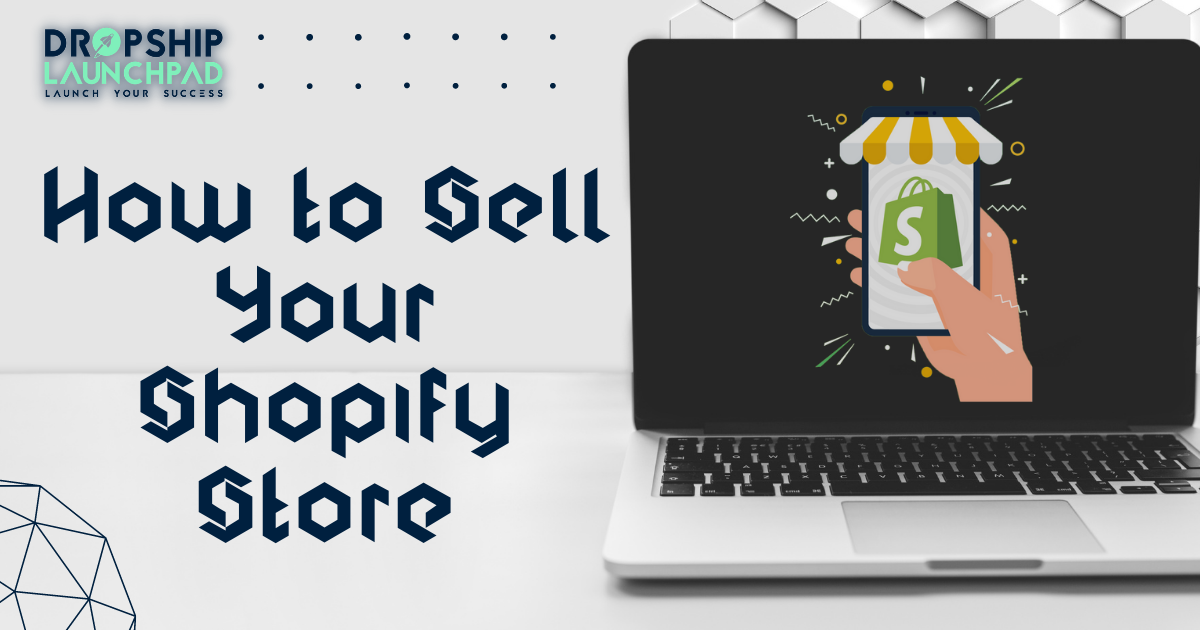
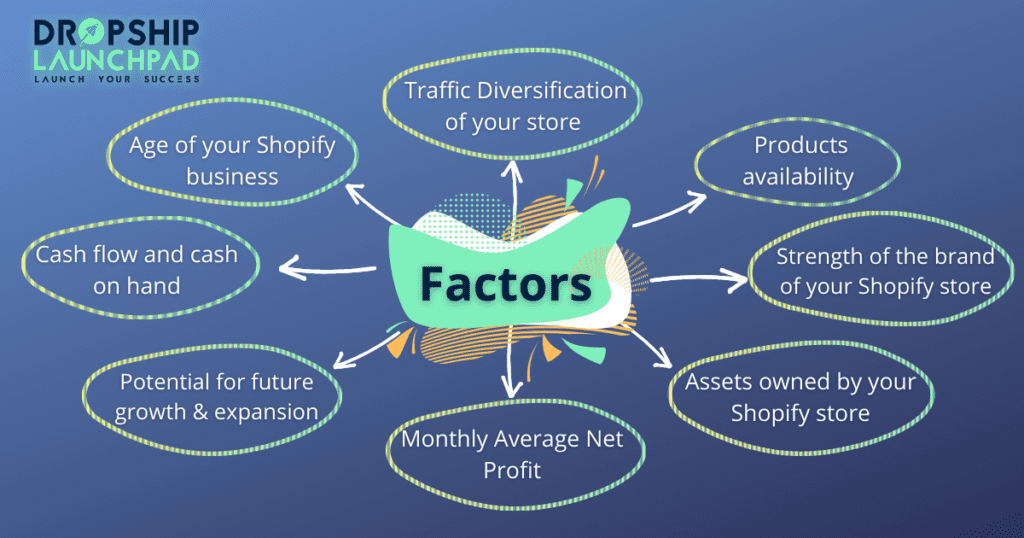 Age of your Shopify business
Age of your Shopify business  Can I Really Make Money with Dropshipping?
Can I Really Make Money with Dropshipping?  10 Amazing Tips to Get Faster Shipping on AliExpress
10 Amazing Tips to Get Faster Shipping on AliExpress  14+ top dropshipping suppliers in the US for 2023
14+ top dropshipping suppliers in the US for 2023  10 ways to boost free traffic to your dropshipping store in 20232
10 ways to boost free traffic to your dropshipping store in 20232